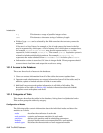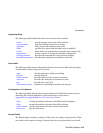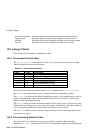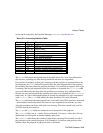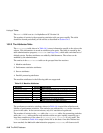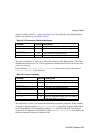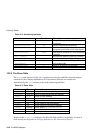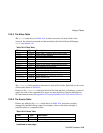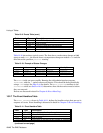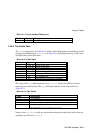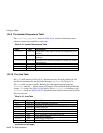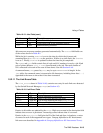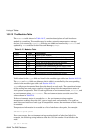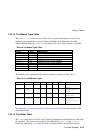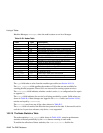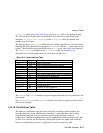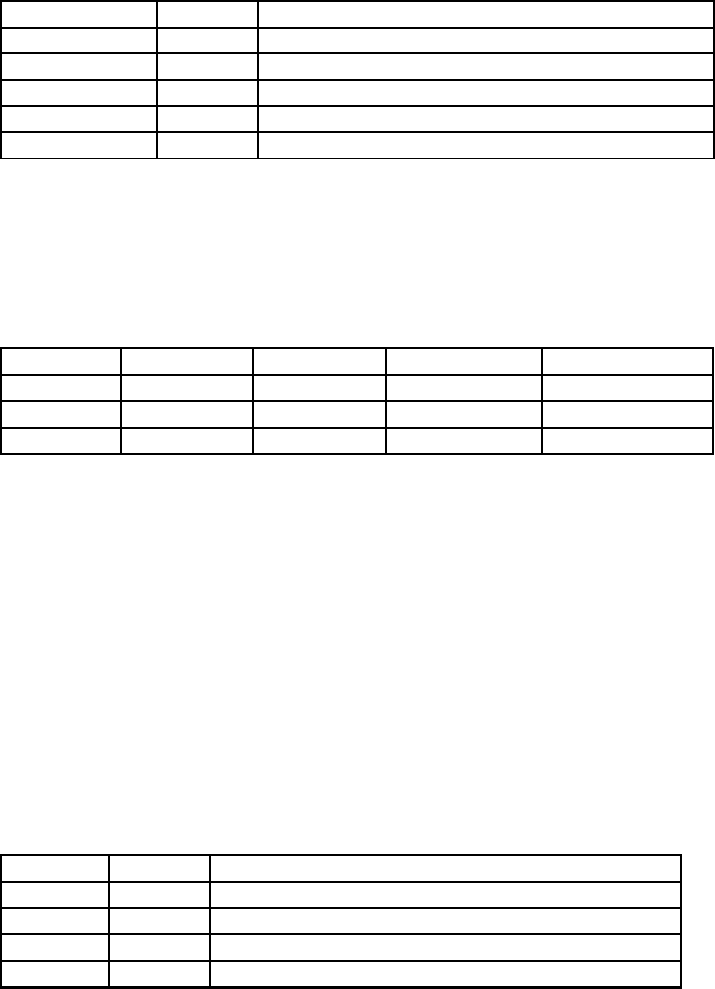
Listing of Tables
Table 10.9: Events Table (cont.)
Field Type Description
class char(16) class of the object, such as node or partition
type char(16) type of event
ctime UTC time at which the event occurred
handled 0 | 1 whether the event has been handled or not
description text description of the event
Table 10.10 shows three typical events. The first shows a node status change as RMS
starts on node cfs1, the second shows a temperature change on module mod2 and the
third shows the partition parallel starting.
Table 10.10: Example of Status Changes
name class ctime type description
cfs1 node 893427468 status running
mod2 module 894991521 temperature ambient=15
parallel partition 894991490 status running
The events table can grow rapidly. Running the table administration program,
rmstbladm, with the -c option removes old entries. This should be done periodically
using a cron script. See Page 5-44 for details. The data-lifetime attribute in the
attributes table (see Section 10.2.3) determines how old the entries must be before
they are removed.
Events are discussed in detail in Chapter 8 (Event Handling).
10.2.7 The Event Handlers Table
The event_handlers shown in Table 10.11, defines the handler scripts that are run in
response to events. Event handling is discussed in detail in Chapter 8 (Event Handling).
Table 10.11: Event Handlers Table
Field Type Description
name char(16) name of object that has changed state
class char(16) class of the object, such as node or partition
type char(16) type of event
timeout int time limit in seconds for the handler to complete
(continued on next page)
10-10 The RMS Database



